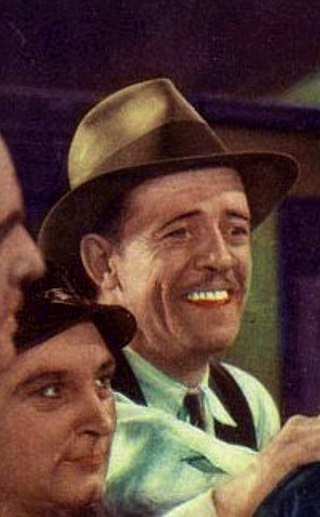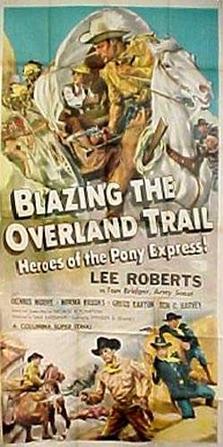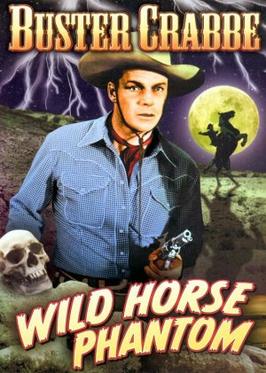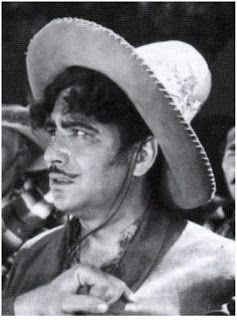
James Oliver Curwood was an American action-adventure writer and conservationist. His books were often based on adventures set in the Hudson Bay area, the Yukon or Alaska and ranked among the top-ten best sellers in the United States in the early and mid 1920s, according to Publishers Weekly. At least one hundred and eighty motion pictures have been based on or directly inspired by his novels and short stories; one was produced in three versions from 1919 to 1953. At the time of his death, Curwood was the highest paid author in the world.

Tom London was an American actor who played frequently in B-Westerns. According to The Guinness Book of Movie Records, London is credited with appearing in the most films in the history of Hollywood, according to the 2001 book Film Facts, which says that the performer who played in the most films was "Tom London, who made his first of over 2,000 appearances in The Great Train Robbery, 1903. He used his birth name in films until 1924.

Kenneth Olin Maynard was an American actor and producer. He was mostly active from the 1920s to the 1940s and considered one of the biggest Western stars in Hollywood.

Tom Tyler was an American actor known for his leading roles in low-budget Western films in the silent and sound eras, and for his portrayal of superhero Captain Marvel in the 1941 serial film The Adventures of Captain Marvel. Tyler also played Kharis in 1940's The Mummy's Hand, a popular Universal Studios monster film.

Raymond William Hatton was an American film actor who appeared in almost 500 motion pictures.

Marshall Jewel Reed was an American actor who appeared in over 200 films between 1943 and 1978. He was born in Englewood, Colorado.

Leonard Miles "Bud" Osborne was an American film actor. He appeared in more than 600 films and television programs between 1912 and 1963.

Blazing the Overland Trail is a 1956 American Western Serial film directed by Spencer Gordon Bennet and starring Lee Roberts. It was the 57th and last serial produced by Columbia and the last American serial ever produced by any studio. Republic Pictures, the only other serial-producing US studio in the mid 1950s, had ceased its serial production the previous year with King of the Carnival.
Harry S. Webb was an American film producer, director and screenwriter. He produced 100 films between 1924 and 1940. He also directed 55 films between 1924 and 1940. He was the brother of "B"-film producer and director Ira S. Webb and the husband of screenwriter Rose Gordon, who wrote many of his films.

Wild Bill Elliott was an American film actor. He specialized in playing the rugged heroes of B Westerns, particularly the Red Ryder series of films.

Edwin Forrest Taylor was an American character actor whose artistic career spanned six different decades, from silents through talkies to the advent of color films.

Wild Horse Phantom is a 1944 American Producers Releasing Corporation Western film of the "Billy the Kid" series directed by Sam Newfield.

The Mysterious Rider is a 1942 American Western film directed by Sam Newfield. It was part of the Billy the Kid film series. The film is also known as Panhandle Trail.
Lawrence J. Darmour (1895–1942) was an American film producer, operator of Larry Darmour Productions from 1927, and a significant figure in Hollywood's low-budget production community.

Richard Edward Botiller was an American character actor of the 1930s and 1940s. While most of his roles were un-credited, many of them nameless as well, he was given more substantial roles occasionally.
Clifford Smith (1894–1937) was an American film director who also occasionally acted and produced. He directed over eighty films between 1915 and 1937 as well as several serials, doing much of his work for Universal Pictures. Primarily a director of westerns he worked with leading genre stars such as William S. Hart.

Fighting Bill Carson is a 1945 American Western film directed by Sam Newfield and written by Louise Rousseau. The film stars Buster Crabbe, Al St. John, Kay Hughes, I. Stanford Jolley, Kermit Maynard and John Cason. The film was released on October 31, 1945, by Producers Releasing Corporation.

The Drifter is a 1944 American Western film directed by Sam Newfield and written by Patricia Harper. The film stars Buster Crabbe, Al St. John, Carol Parker, Jack Ingram, Jimmy Aubrey and Slim Whitaker. The film was released on June 14, 1944, by Producers Releasing Corporation.

Trails of the Wild is a 1935 American adventure film directed by Sam Newfield and written by Joseph O'Donnell. The film stars Kermit Maynard, Billie Seward, Monte Blue, Matthew Betz, Fuzzy Knight and Wheeler Oakman. The film was released on August 1, 1935, by Ambassador Pictures.

Robert Dee Henry was an American actor and stuntman. He starred in the 1946 serial film Hop Harrigan, in which he played Jackie Nolan.
















